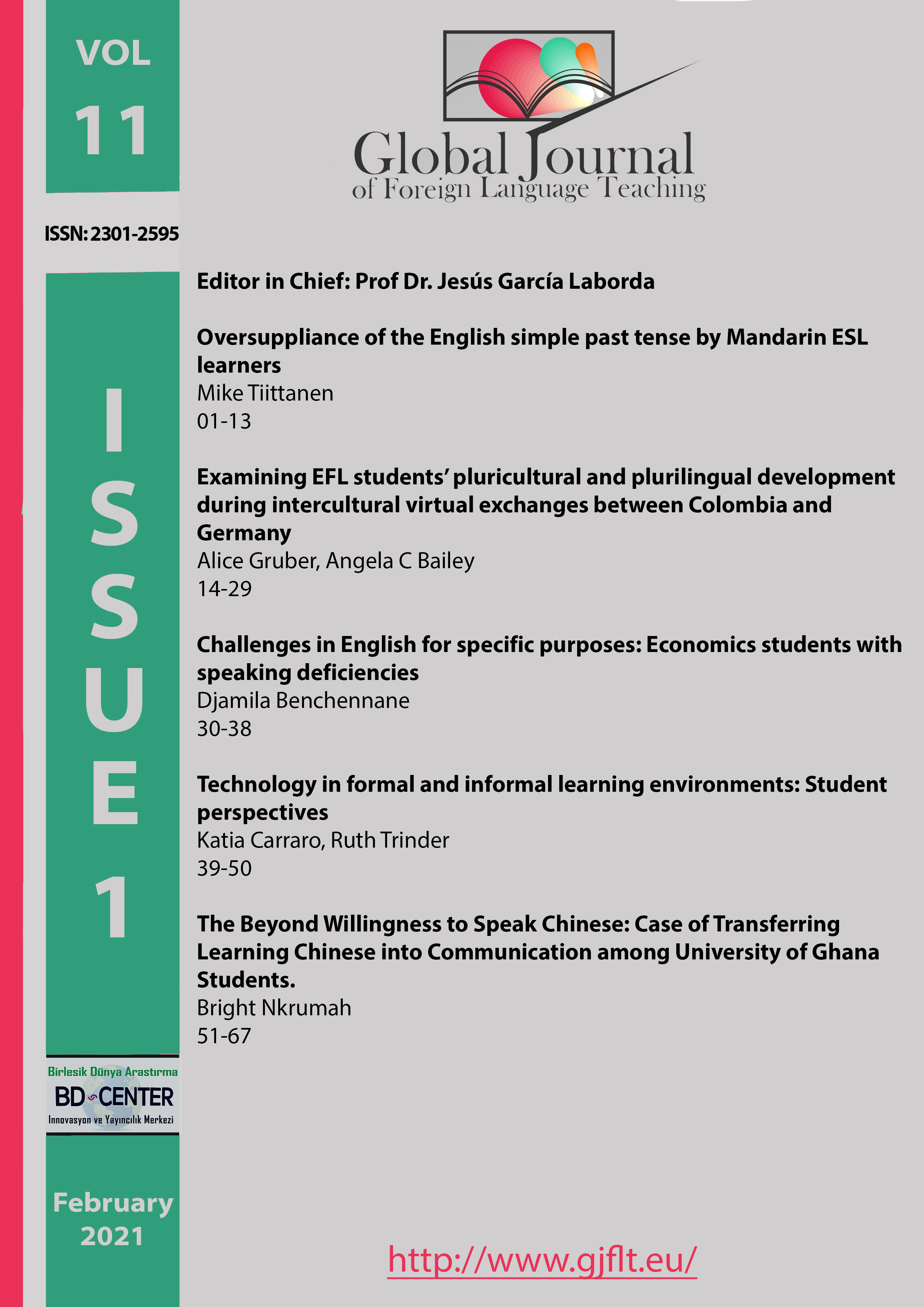The Beyond Willingness to Speak Chinese: Case of Transferring Learning Chinese into Communication among University of Ghana Students.
Main Article Content
Abstract
Willingness to communicate (WTC) has become an important role that facilitate language learning, the aim of this paper is to investigate WTC in Chinese as foreign language of motivation to transfer learning through oral communication among students learning Chinese at the university of Ghana. Second language learner’s motivation to transfer learning is grounded on effort, desire, knowledge, and skills learned in classroom and beyond the classroom to achieve the goal of learning a language. By adopting a survey approach, a quantitative data was administered for the study via questionnaires. one hundred (100) participants from level 200,300 and 400 were involved in the study to ascertain the factors that influence student’s willingness to communicate in Chinese. According to the results, personality trait, environment and teaching practice, language skills, the complexity of medium of translation, anxiety and self-confidence, were factors that contributes to students WTC.
Keywords-University of Ghana, Chinese learners, willingness to communicate
Downloads
Article Details

This work is licensed under a Creative Commons Attribution 4.0 International License.
Authors who publish with this journal agree to the following terms:- Authors retain copyright and grant the journal right of first publication with the work simultaneously licensed under a Creative Commons Attribution License that allows others to share the work with an acknowledgement of the work's authorship and initial publication in this journal.
- Authors are able to enter into separate, additional contractual arrangements for the non-exclusive distribution of the journal's published version of the work (e.g., post it to an institutional repository or publish it in a book), with an acknowledgement of its initial publication in this journal.
- Authors are permitted and encouraged to post their work online (e.g., in institutional repositories or on their website) prior to and during the submission process, as it can lead to productive exchanges, as well as earlier and greater citation of published work (SeeThe Effect of Open Access).
